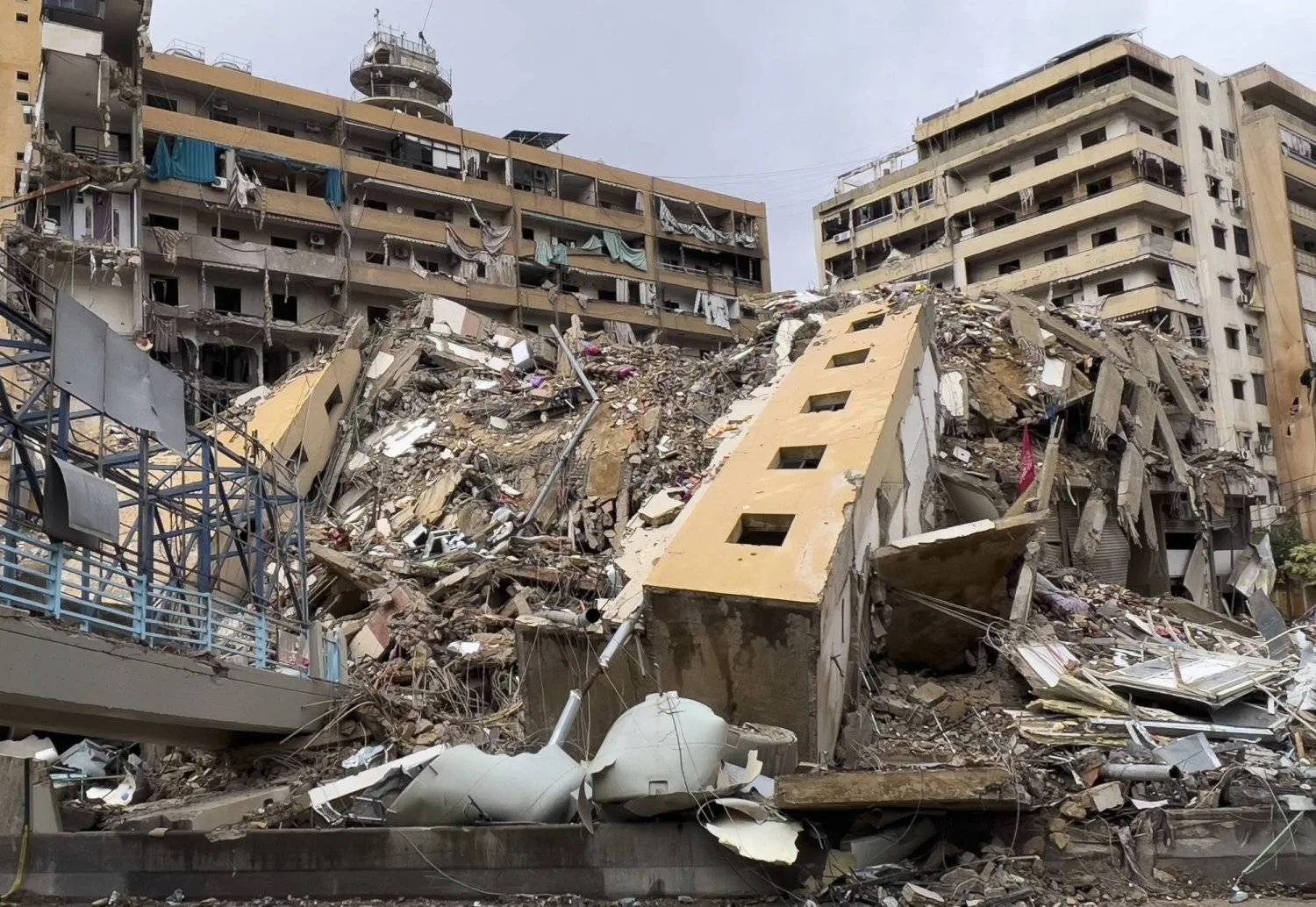Hezbollah is struggling to cope with the unprecedented consequences of the war with Israel, particularly within its own base, as it tries to support over one million people displaced from Beirut’s southern suburbs, south Lebanon, and the Bekaa Valley.
These people have spread across various parts of Lebanon, while some have fled to Syria and Iraq. In response, Hezbollah’s media and officials are promising compensation, reconstruction, and urging people to remain resilient. They have also begun providing limited financial assistance.
Recently, Hezbollah launched the “Samidoun” platform, designed mainly to offer financial help to the displaced, after previously providing limited food and supplies.
Families can receive between $300 and $400, depending on where they have relocated.
Families in coastal areas get $300, while those in colder regions who need heating are given $400. Hezbollah members also receive this support, which is added to their monthly salaries.
The financial aid, which has helped displaced people facing major financial struggles after using up their savings and losing their jobs, is still unclear.
It’s not known whether this aid will be given monthly, periodically, or just as a one-time “gift,” as some are calling it.
One woman, who recently received the aid, is considering using it to rent a home—“even just a room”—after getting tired of staying in a school shelter.
“My children, including an 8-month-old, are getting sick from the cold because there’s no heating,” she said.
“But the problem is we don’t know if we’ll get this money every month, so I’m not sure I can afford the rent.”
Hezbollah had been giving monthly assistance to displaced people from southern villages since the war began on Oct. 8 last year.
It had mostly managed to cover rent for those displaced, but the situation changed after the war expanded on Sep. 23.
The number of displaced people quickly grew, overwhelming Hezbollah’s ability to continue providing support for families from the south, Bekaa, and Beirut's southern suburbs.
Hezbollah officials continue to reassure families about the rebuilding process, which is a major concern for the thousands who lost their homes. A World Bank report estimates that around 100,000 homes were partially or completely destroyed in the conflict.
Hezbollah’s Secretary-General, Naeem Qassem, stated that the party is preparing for large-scale reconstruction, promising that destroyed homes and businesses will be rebuilt even better.
Hezbollah MP Hassan Fadlallah also confirmed that the party is committed to serving the people, with reconstruction being a key part of this promise.
Reports have also suggested that Iran pledged to help rebuild southern Beirut, south Lebanon, and Baalbek during visits by Iranian officials to Beirut.
However, political analyst Ali Amin argues that these efforts are insufficient.
He told Asharq Al-Awsat that the damage to Hezbollah’s image continues to cause confusion and protests, with some people feeling betrayed.
Amin added that Hezbollah’s messages of patience and eventual victory are not convincing, especially for those struggling to survive. He believes that the party’s ability to maintain support is closely tied to its military reputation, which has been severely damaged.
Amin also highlighted Hezbollah’s focus on providing for its own members, ensuring they receive timely salaries, housing, food, and healthcare.
However, he notes that many displaced people are still facing unmet needs, with complaints about the limited and inconsistent aid provided through the “Samidoun” platform.









